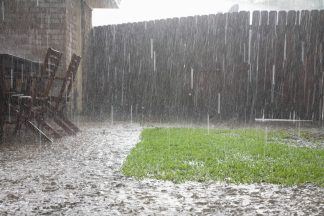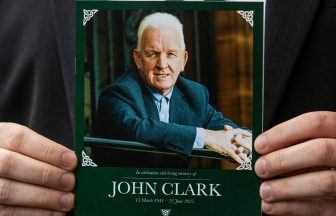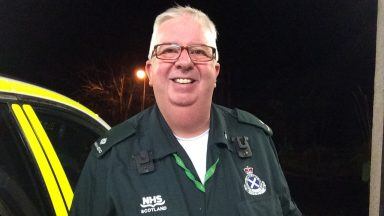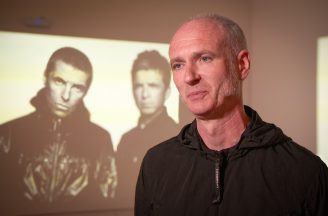More than 3,000 child sexual abuse image crimes have been recorded by Police Scotland over the past five years.
The NSPCC is urging the UK Government to ensure children are better protected in private messaging environments, as Scottish Government data reveals that 3,419 child sexual abuse crimes have been recorded by Police Scotland since 2019.
In the last two years they have reached record levels, with more than 700 offences being logged each year (748 in 2023/24 and 765 in 2022/23).
A separate Freedom of Information request submitted to police forces across the UK by the NSPCC showed that where law enforcement recorded the platform used by perpetrators, exactly half (50%) took place on Snapchat and a quarter on Meta products – 11% on Instagram, 7% on Facebook and 6% on WhatsApp.
In response, a joint letter from charities, including the NSPCC, Marie Collins Foundation, Lucy Faithfull Foundation, Centre of expertise on child sexual abuse, and Barnardo’s, has been sent to home secretary Yvette Cooper and secretary of state for science, innovation, and technology Peter Kyle.
The letter expresses collective concern regarding Ofcom’s final Illegal Harms Code of Practice published in December 2024. The charities argue that as it stands, children will not be protected from the worst forms of abuse on private messaging services under Ofcom’s plans, despite this being a core aim of the Online Safety Act.
Ofcom has stated that user-to-user services are only required to remove illegal content where it is ‘technically feasible’. This exception creates an unacceptable loophole, allowing some services to avoid delivering the most basic protections for children.
Data from police forces on the number of recorded offences where the platform was known indicates private messaging sites are involved in more crimes than any other type of platform, with perpetrators exploiting the secrecy offered by these spaces to harm children and go undetected.
The NSPCC wants the UK Government to push Ofcom to review and strengthen their most recent codes of practice on tackling this threat to children’s safety online.
The charity is also calling for private messaging services, including those using end-to-end encryption, to make sure there are robust safeguards in place to ensure their platforms do not act as a ‘safe haven’ for perpetrators of child sexual abuse.
End-to-end encryption is a secure communication system where only communicating users can participate. This means that service providers can be blinded to child sexual abuse material being shared through their platform.
Aoife, 21, from East Kilbride, an NSPCC lived experience advocate, has shared her advice to any children who experience online harms.
Aoife was exploited online when she was 15 by a man she met online on Yubo. He pretended to be a teenager around her age and convinced her to download another app, Telegram, and then asked her to send him images of herself. Then he blackmailed her with these, threatening to share them with all her friends and family on Facebook, to control her behaviour.
 iStock
iStockWhen his demands became increasingly intense and frightening, Aoife recalled being told about the Child Exploitation and Online Protection Command (CEOP) at school and reported the images. Through this, her school and then her parents were informed and supported her with reporting what happened to the police. The perpetrator was eventually sentenced in 2022 following an investigation by the National Crime Agency (NCA).
She said: “If a young person is asked to share an explicit image of themselves with someone online, I would say don’t do it! You might want to and think you know what you are doing, and that you’ll be safe but if you met them online you don’t know who that person is. For all you know they could be the opposite of who they say they are, so I would say – just don’t do it. It’s not worth the risk.
“If a young person has shared an image and they are being threatened tell someone you trust whether that’s a parent, teacher or neighbour because they will look out for you and help.
“I would also say to anyone who experiences this – it’s not your fault. You are the victim. You might be thinking how could I be so silly and put myself in this position but when you are young it’s perfectly normal to make mistakes – you’re still learning – so don’t be hard on yourself. You have been taken advantage of, and they are to blame, not you.”
Insight from NSPCC counselling service, Childline, provides further evidence of how young people are being targeted or blackmailed to share child abuse images via the calculated use of private messaging apps.
Last year, Childline delivered 903 counselling sessions to children and young people relating to blackmail or threats to expose or share sexual images online. This was a 7% increase compared to 2022/23.
Chris Sherwood, NSPCC chief executive, said: “It is deeply alarming to see thousands of child sexual abuse image crimes recorded by Police Scotland in the past five years. These offences cause tremendous harm and distress to children, with much of this illegal material being repeatedly shared and viewed online. It is an outrage that in 2025 we are still seeing a blatant disregard from tech companies to prevent this illegal content from proliferating on their sites.
“Having separate rules for private messaging services lets tech bosses off the hook from putting robust protections for children in place. This enables crimes to continue to flourish on their platforms even though we now have the Online Safety Act.
“The Government must set out how they will take a bold stand against abuse on private messaging services and hold tech companies accountable for keeping children safe, even if it requires changes to the platform’s design – there can be no excuse for inaction or delay. “
If you or a young person you know is struggling with abuse online, you can find help and advice at the following organisations:
Follow STV News on WhatsApp
Scan the QR code on your mobile device for all the latest news from around the country


 iStock
iStock




















